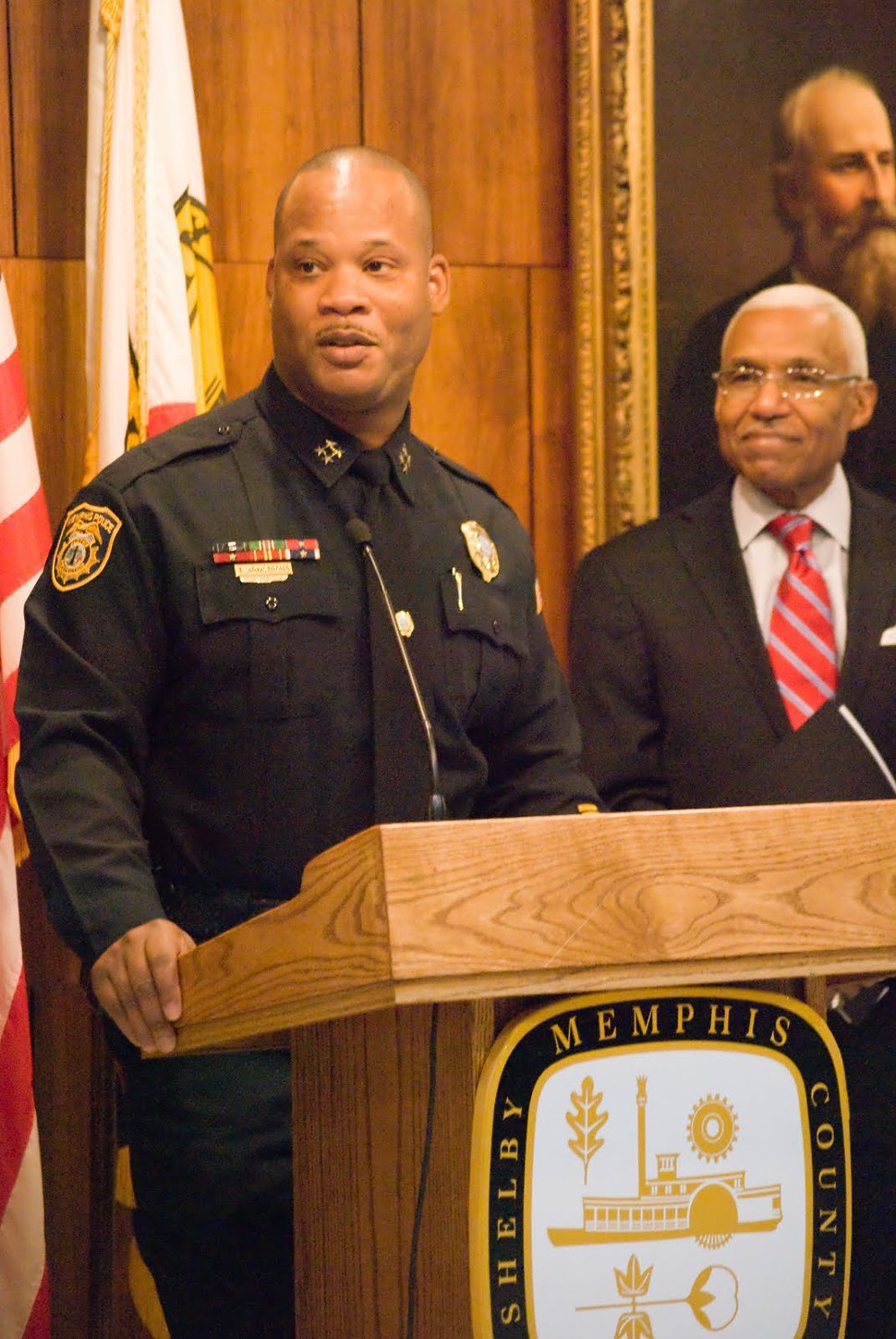Sometimes the writing is on the wall — literally. And it’s that writing the Memphis City Council is trying to abolish. This week, the City Council’s public safety and homeland security committee continued to talk about a proposed graffiti ordinance based on a strict New York City anti-graffiti law.
Outgoing councilman Jack Sammons raised the question of graffiti at a committee meeting earlier this month after noticing an explosion of graffiti on his weekend bicycle rides around town.
“It’s a never-ending problem, but if you believe in the broken windows theory … it’s something we cannot allow to go unabated,” he said.
The broken windows theory — from a 1982 magazine article and later a 1996 book about reducing urban crime — says that unkempt neighborhoods contribute to crime.
Sammons saw his “broken window” at a car wash on Southern Avenue that had been tagged. When he rode by it again, the building was awash in more graffiti.
Memphis Police Department (MPD) director Larry Godwin wasn’t surprised. “If one gang puts something up, that’s disrespecting another gang. So they come and put something on it,” Godwin said. “Before you know it, you have a whole wall of graffiti.”
Currently, MPD charges graffiti writers with vandalism, but officers have to catch them in the act. The New York City law bars minors from owning “graffiti instruments” and bans the possession of those same instruments in any public place with the intent to “make graffiti.”
Godwin told council members that several things concern him about the New York law: Proving intent could be problematic and limiting spray paint sales to people old enough to vote would also be difficult.
Godwin also noted that the New York police department has an entire division devoted to dealing with graffiti. Within the MPD, enforcing a graffiti ordinance would fall to patrol officers.
Additionally, Memphis officials would need to be cautious in creating an ordinance. A federal appellate court struck down New York’s anti-graffiti law in the spring, saying it was overly broad. The most recent version of the law — signed earlier this month — includes the same general provisions, but includes exemptions for owning and using those darned graffiti instruments in an effort to make it constitutionally sound.
In addition to defensive measures, council members also discussed ways to clean up graffiti. Carol Chumney suggested a citizen task force, and it appears that Operation Take Back, a faith-based initiative, is already on the walls.
The program is led by Dwight Montgomery, head of the local Southern Christian Leadership Conference chapter and pastor of Annesdale Cherokee Missionary Baptist Church.
Montgomery proposed several ideas to council members, including requiring guilty parties to clean up graffiti rather than serve jail time, a citizen hotline to report graffiti, and groups of cleaners to remove neighborhood graffiti.
“We talked to Memphis City Beautiful about having paint and water-pressure machines,” Montgomery said. “We would have congregations participate in their own neighborhoods.”
Memphis City Beautiful already has a tool bank that loans rakes, brooms, and shovels to neighborhood residents wanting to clean up their streets, but the organization doesn’t have any equipment for removing graffiti.
Not that it has to stay that way. Councilman Scott McCormick, a former Memphis City Beautiful board member, said it would be great to get the group involved.
“They do the same projects each year,” he told committee members. “You could utilize the board and give it new energy, but you will have to give it more funds. We have a resource sitting right there, but we don’t utilize it.”
I’m not necessarily against graffiti. Regardless of the broken windows theory, I think some graffiti can inspire. But gang signs and territorial markings leave visual evidence of violence, almost in the same way bullet-ridden windows and police tape do.
Despite the talk of a new ordinance, it seems to me that eliminating graffiti will fall to area residents. Look at littering. Like graffiti, it happens in the public realm. Unlike graffiti, I think I can safely say that littering doesn’t have any redeeming value. And though it’s illegal to litter — violators can get a $500 fine and 40 hours of community service for their first conviction — I see enough litter to know that the promise of an empty wallet and an orange vest isn’t enough to stop people.
And if the city’s crime rates are any indication, police officers have more important criminals to catch.
“The city is filthy,” Sammons said. “It’s dirtier than I’ve ever seen it. … It’s going to take more than a village. It’s going to take a battalion to clean up this city.”
